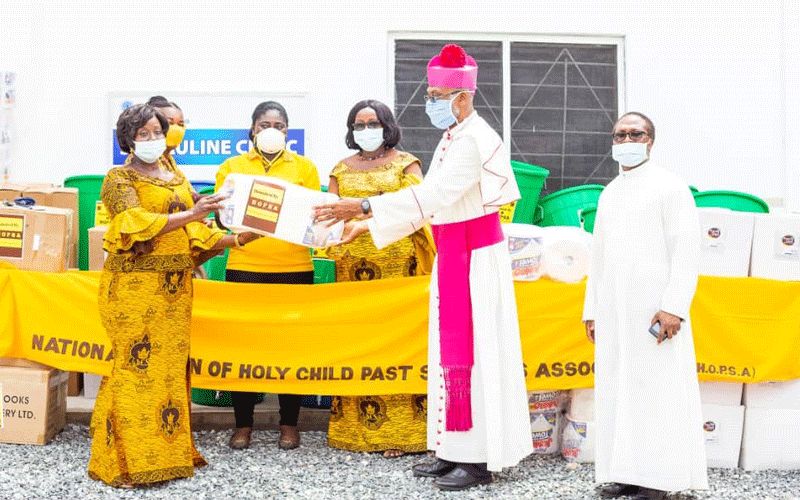Accra, 24 May, 2020 / 2:30 am (ACI Africa).
Two Catholic women groups in the West African nation of Ghana have, in separate ceremonies, donated to the National solidarity fund to help in the fight against COVID-19, responding to the appeal made by their Bishops in March.
The two groups, the National Council of Catholic Women (NCCW) and the National Union of Holy Child Past Students Association (NUHOPSA) have donated GHc10,000.00 (US$ 2,000.00) and GHc60,000.00 (US$12,000.00) respectively.
“As Mothers, since we cannot fold our arms unconcerned, we decided to make this donation to support our Bishops’ COVID-19 Emergency Response Fund directed towards the vulnerable and the needy,” the President of the NCCW, Mrs. Elizabeth Apprey Pobee, said May 11 when she presented a Cheque of GHc10,000 (USD 2,000) as their collective contribution.
“All must come on board to support the Bishops to achieve the purpose for establishing the COVID-19 Fund,” Mrs Apprey emphasized during the ceremony that took place at the Accra-based National Catholic Secretariat (NCS).
In a separate ceremony on May 22, the National Union of Holy Child Past Students Association (NUHOPSA), a Catholic female institution in the Cape Coast Archdiocese, donated Personal Protective Equipment (PPEs) worth GHc60,000.00 (USD12,000).








